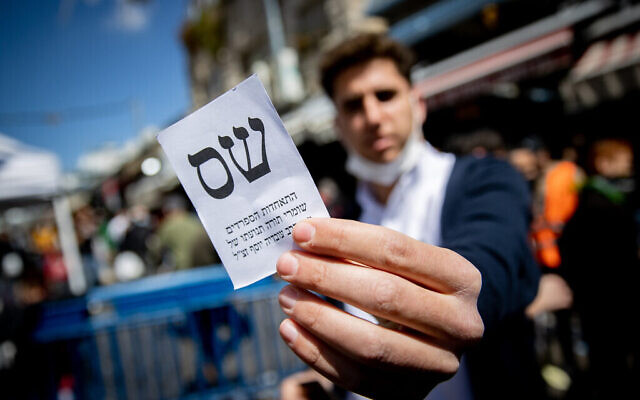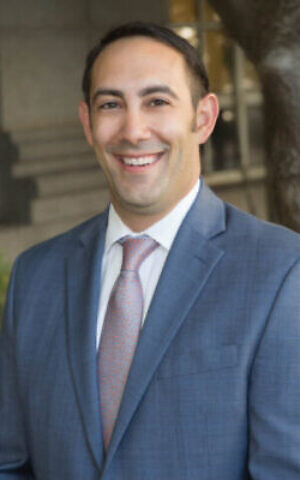Neither Side Receives Clear Parliamentary Majority
Israeli’s fourth election may lead to another vote later this year.

If it was difficult to construct a coalition government in Israel’s last three elections, it may even be more difficult in the wake of the fourth election held March 23. The fourth election in only two years resulted in a number of surprises that will complicate an already tricky challenge to create a parliamentary majority government.
Number one surprise is the successful running of a group of parties known as the Religious Zionism party, which includes a homophobic party and a party of former followers of the late Rabbi Meir Kahane. The latter party, Kach, was outlawed in Israel, as well as defined as a terrorist group by the U.S. government. When that party Otzma Yehudit ran in a previous election, it was denounced by both the American Jewish Committee and the American Israel Public Affairs Committee.
The second surprise was that an Islamic Arab party – United Arab List – that broke away from the Joint List of Arab parties just prior to this election passed the threshold to enter the Knesset. Parties needed to receive 3.25 percent of the votes to pass the threshold, giving them four seats in the Knesset, Israel’s parliament.
In contrast to previous election campaigns, Prime Minister Benjamin Netanyahu actually courted the UAL, and the Arab vote.
To illustrate the ironies of Israeli coalition building, Netanyahu may need to include both of these parties, which many consider extreme, to achieve a majority coalition of at least 61 members. And one of the leaders of the Religious Zionism party and the UAL party leader have stated that they won’t sit in a coalition government with each other.

Otherwise, as Israel Democracy Institute President Yohanan Plesner said in a press briefing the morning after the election, Israel is “back to square one.”
“Sadly, I wasn’t surprised by any of the results,” said Dov Wilker, regional director of the American Jewish Committee in Atlanta. The election “didn’t necessarily change the way Israel functions.” Wilker pointed out that the results, which appear to have Knesset members from 13 parties rather than eight in the previous legislature, “shows the strength of Israeli democracy. People vote for parties that reflect their values.”
According to Ofer Kenig, a research fellow at the IDI, “One of the most striking elements to emerge from the preliminary results is that the current Knesset is going to be much more fragmented. The multiplicity of parties, of course, does not bode well for the chances of forming a stable government.”
Trying to find the silver lining behind the clouds, Wilker said, “I really hope the [next] government can last at least 18 months.” The recent government, which collapsed in December, had coalesced last May.
The potential strange bedfellows in the next coalition government is not the only historic result of the recent election. For the first time, a non-Orthodox rabbi will sit in the Knesset.
Indeed, during the election campaign, some ultra-Orthodox party members pledged to boycott Rabbi Gilad Kariv if he became a Knesset member. Kariv is the executive director of the Israel Movement for Reform and Progressive Judaism. He is an attorney as well as a Reform rabbi who once led the Beit Daniel synagogue in Tel Aviv.

Usually, the Israeli election committee has a week to complete its counting of the votes cast by the electorate, which numbers as high as 6.5 million. Tabulating the estimated 4.5 million votes cast this election, however, was complicated by the fact that a much higher than usual number of Israelis voted by what is considered absentee voting there.
In general, only soldiers and diplomats abroad can vote absentee. However, in this election, thousands of Israelis sick with COVID-19 or in quarantine could also vote absentee. The election committee hoped to have those votes counted by Friday.
This weekend’s onset of Passover also sped up the vote counting.
Israeli President Reuven Rivlin has said that he will wait for finalized results to be announced on March 31 before he tasks any Knesset member to cobble together a unity government. Then he will have a week, until April 7, to choose a lawmaker to attempt to form a governing coalition.
Significantly, two days earlier, on April 5, the evidentiary stage of Netanyahu’s corruption trial will begin.
“There is already talk of a fifth election and we have not even gotten the final count from Tuesday,” notes Eli Sperling, the Israel specialist for the Center for Israel Education at Emory University, now also a postdoctoral associate at Duke University. “Israel is still reeling from COVID, Netanyahu’s controversies and criminal trials, economic troubles, existential threats in the region, and a need for many important infrastructure improvements as Israel’s population grows.”

Sperling suggests there are several large questions looming, even – or especially – after this election. “What will it take for Netanyahu to be out of the picture? Could dangling a pardon and the soon-vacant presidency be the answer? Is it necessary that he not be on the Likud [party] ticket for them to rebuild anew, maybe [Gideon] Sa’ar as their head? Could the left rebuild their base and re-align to embrace a center-left platform and take back the premiership from Likud after 20 years? These are important questions, but only time will tell.”



comments